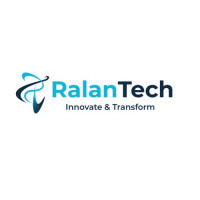PostgreSQL® vs. MySQL™: 10 Key Differences and How to Choose?

Strong 8k brings an ultra-HD IPTV experience to your living room and your pocket.
Choosing the right database is critical for any IT infrastructure. PostgreSQL® and MySQL™ are two of the most widely adopted open-source relational database systems. Each has its own strengths, performance profiles, and support communities. While both are powerful, knowing their differences helps in making the right choice based on project demands, scalability needs, and available expertise.
In this blog, we’ll compare PostgreSQL and MySQL across 10 key areas. We’ll also guide you on how to decide between them—especially if you're exploring services like MySQL Recovery Service Los Angeles or considering a PostgreSQL Consulting Service for enterprise-grade solutions.
1. License and Compliance
PostgreSQL uses the PostgreSQL License, a liberal open-source license similar to BSD or MIT.
MySQL is licensed under the GPL (General Public License), with commercial versions available from Oracle.
If you're building proprietary systems and prefer more licensing freedom, PostgreSQL is often a better fit. Its permissive license reduces legal overhead and encourages community contributions, making it ideal for startups and large enterprises alike.
2. ACID Compliance
PostgreSQL is fully ACID-compliant by default.
MySQL is ACID-compliant only when using the InnoDB storage engine.
PostgreSQL’s out-of-the-box reliability is a big advantage for transactional applications in industries like finance and healthcare. It reduces the need for additional middleware or complex recovery strategies, providing peace of mind in critical data environments.
3. SQL Standards Support
PostgreSQL follows SQL standards more closely and supports advanced SQL features like Common Table Expressions (CTEs), full joins, and window functions.
MySQL offers solid support but lags behind in some advanced querying capabilities.
This makes PostgreSQL preferable for complex analytics or reporting environments. Its rich feature set simplifies development and boosts performance, making it the first choice for data scientists and business intelligence teams requiring deep insights.
4. Data Types and Extensibility
PostgreSQL supports a rich set of data types: arrays, hstore, UUID, JSONB, and more.
MySQL has fewer data types and less extensibility.
PostgreSQL is more flexible if you need custom functions or support for non-standard data formats. Its architecture allows users to create their own types, operators, and indexing methods, enabling highly customized solutions tailored to specific application needs. This extensibility attracts developers working on cutting-edge or specialized projects.
5. Performance Tuning and Indexing
PostgreSQL offers powerful indexing options like GIN, GiST, and BRIN.
MySQL relies primarily on B-tree indexes.
For high-performance workloads, PostgreSQL’s indexing and query optimization can give you a noticeable edge. Its advanced planner and support for parallel queries further improve execution times, especially in analytic environments or systems with heavy read/write demands. This makes it a strong candidate for performance-sensitive applications.
6. Replication Features
PostgreSQL supports asynchronous, synchronous, and logical replication.
MySQL supports master-slave and group replication but lacks mature logical replication.
If scalability and data distribution are crucial, PostgreSQL provides more control and consistency. Its replication capabilities allow organizations to build resilient, scalable systems that can handle high availability and geographic data distribution requirements efficiently.
7. Community and Ecosystem
Both databases have large, active communities.
PostgreSQL’s community is seen as more transparent and engineering-focused.
MySQL benefits from Oracle’s commercial backing and widespread adoption.
If you’re already using a MySQL Recovery Service Los Angeles, the ecosystem might feel more familiar. But for businesses needing innovation and flexibility, PostgreSQL’s open contributions are valuable.
8. Security Features
PostgreSQL supports native SSL, row-level security, and extensive role management.
MySQL offers SSL and user privilege controls but lacks fine-grained security features.
PostgreSQL is often the better choice for security-first environments. Its advanced security features make it ideal for financial institutions, healthcare providers, and any organization with strict data protection requirements that demand granular control over database access.
PostgreSQL offers advanced JSON and JSONB support, indexing, and query capabilities.
MySQL also supports JSON but lacks comparable indexing and performance.
For hybrid workloads that mix relational and document-based data, PostgreSQL performs better. Its ability to seamlessly integrate JSON with relational features allows developers to build flexible, high-performance applications that can evolve as data requirements change over time.
10. Support for Customization
PostgreSQL allows custom data types, operators, and indexing methods.
MySQL is more restrictive with extensions and plugin support.
If your architecture demands database-level customization, PostgreSQL is the more developer-friendly choice. It empowers teams to innovate and optimize their data layer extensively, providing a competitive advantage in building sophisticated, performance-tuned applications.
So, Which One Should You Choose?
| Use Case | Recommended DB |
| High-security compliance | PostgreSQL |
| Complex analytics and reporting | PostgreSQL |
| Recovery and commercial support | MySQL |
| High write throughput with replication | PostgreSQL |
| Lightweight CMS or blog platforms | MySQL |
If your business is actively investing in infrastructure reliability, integrating a PostgreSQL Consulting Service can unlock deeper optimization and scalability. On the other hand, if recovery services and enterprise support are top priorities, especially in high-volume transactional environments, a MySQL Recovery Service Los Angeles might be a more appropriate fit.
Final Thoughts
Both PostgreSQL and MySQL have matured into production-grade databases. Your decision should align with business needs, existing toolchains, and team skillsets. Evaluating your current database footprint and operational priorities can help narrow the right choice.
If you’re already leveraging services like MySQL Recovery Service Los Angeles, ensure your team also reviews PostgreSQL’s long-term benefits. In the evolving database landscape, being open to multi-database strategies is not just smart—it’s essential.
Note: IndiBlogHub features both user-submitted and editorial content. We do not verify third-party contributions. Read our Disclaimer and Privacy Policyfor details.


